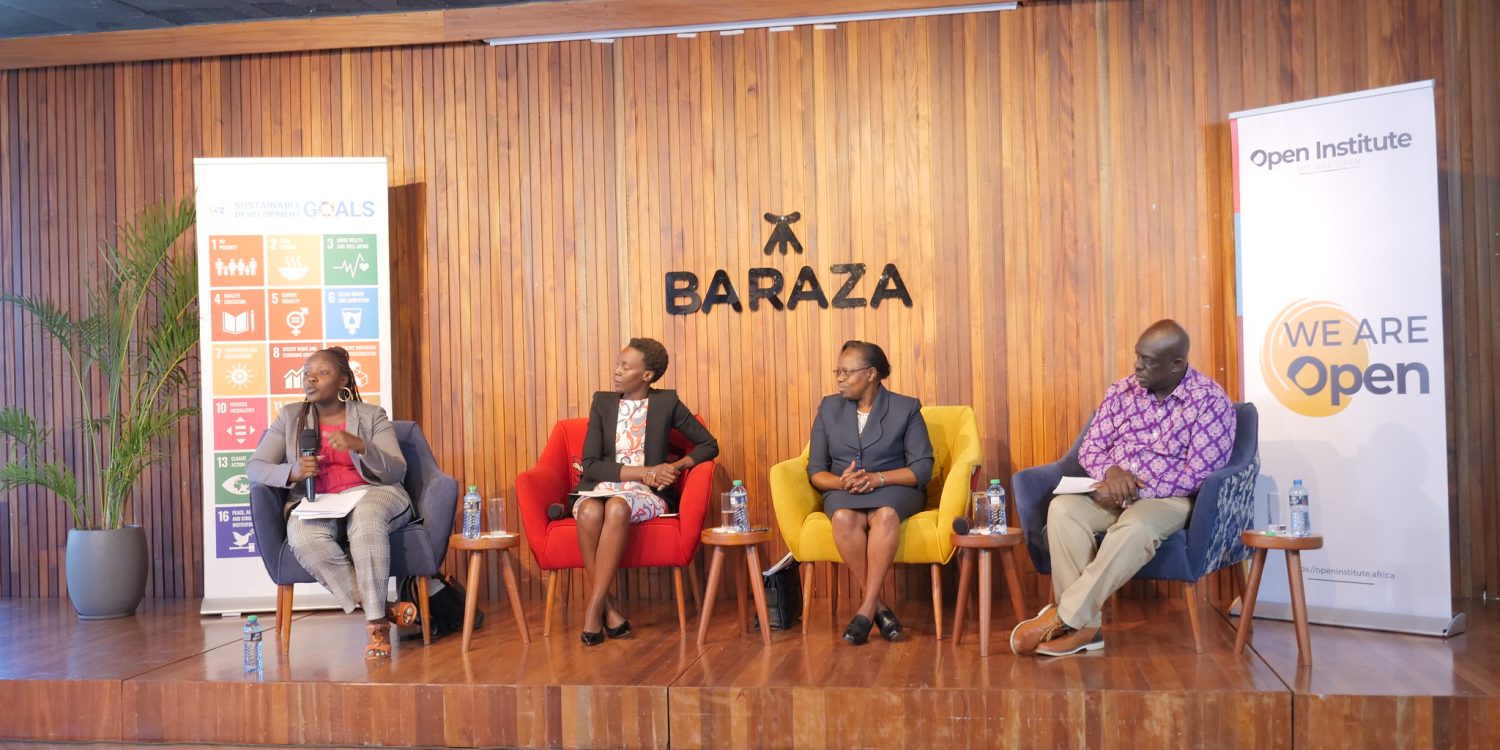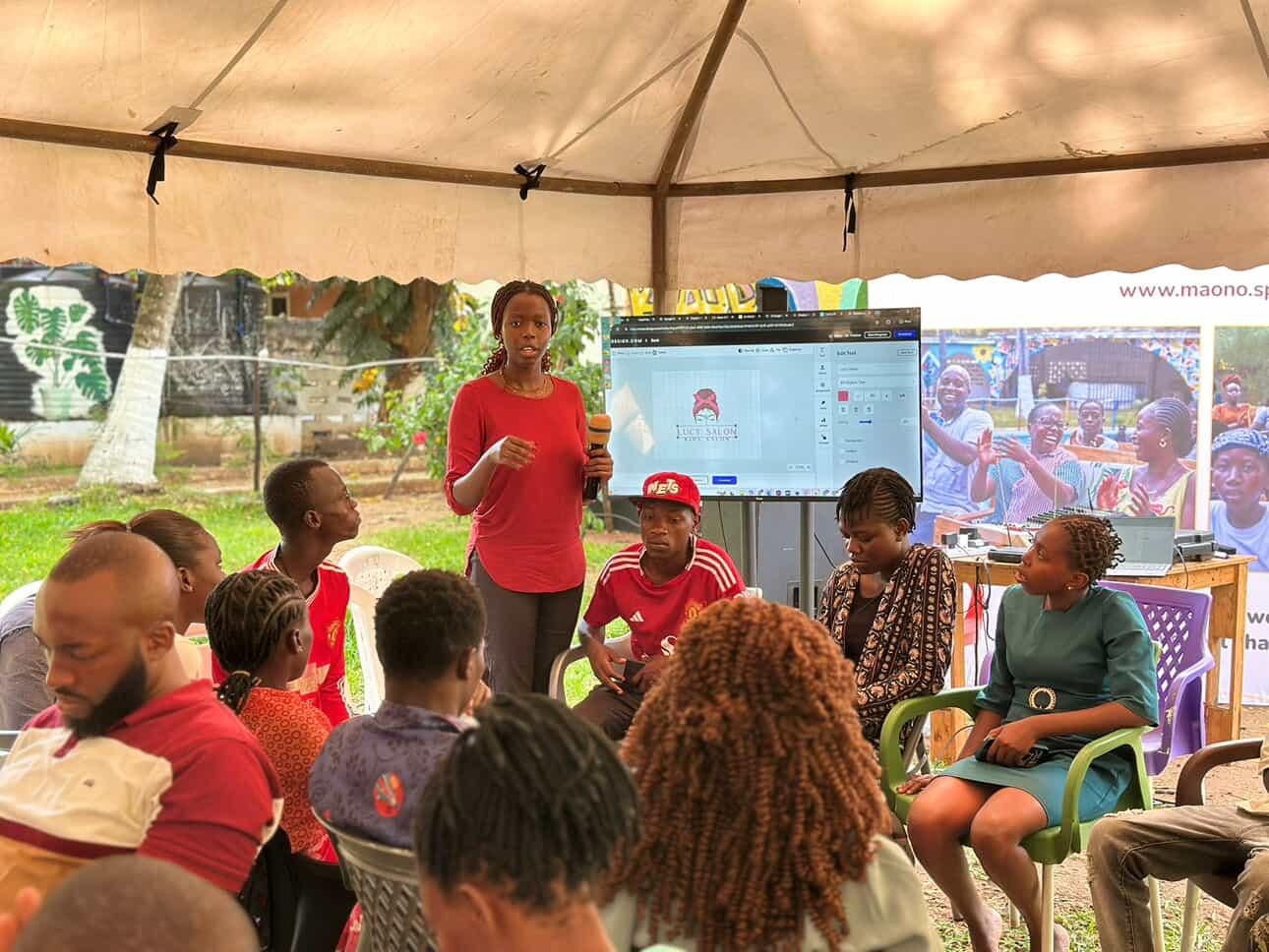The Governors Baraza, a high-level breakfast meeting that brought together Governors, civil society organisations and development partners on October 12, 2022 was held at the Baraza Media Lab in Nairobi.
The first of a new series, the Governors Baraza aims to provide a platform where county leadership can highlight their county priorities in the new administration to provide civil society actors and development partners with information on how they could best support and keep the governments accountable in achieving their development objectives.
Co-organized by the Open Institute, The SDGs Kenya Forum and Baraza Media Lab, the Governors Baraza’s ultimate goal is to enable CSOs to provide support, build relationships and to advocate for the governors to adopt good practices from the onset.
The event was well-attended with representing from GIZ, the Gates Foundation, Concern Worldwide and other local CSOs such as Kenya Land Alliance and FEMNET. The three counties represented were Nandi County, by Deputy Governor Dr. Yulita Mitei, Makueni County by County Secretary Rael Mumo, and Meru County by Ms. Sandra Kimathi.
The Governors’ Address
To start off, the county representatives were given 15 minutes each to speak on their immediate goals and challenges and the areas in which they welcome the participation of CSOs. A common theme in all the counties was the issue of food security, mostly attributed to climate change. The counties sought partnerships in the areas of provision of clean water and value addition through supporting the completion of a milk processing plant, in the case of Nandi County. Surprisingly, both Meru and Nandi County highlighted that there were a large number of gender-based violence cases, a key area of support needed in the county. This sparked quite some interesting discussions with the audience, particularly during the open floor question session that followed right after.
Answering key questions
The county leaders then sat in a panel which was moderated why Open Institute’s Executive Director, Al Kags, where he asked key questions arising from the issues that each county representative had brought forward. Addressing matters of county budgets, education, food security and gender, each of the county representatives gave thoughtful opinions on where they were as a county and what they planned to do about each of the issues. Dr. Yulita Mitei spoke about Nandi County’s huge wage bill saying that one of the main reasons the wage bill was that high was because the county suffered various irregularities in its hiring process. They recently instituted an airtight programme for a staff audit that successfully brought the wage bill down to 45%, with the county planning to further reduce the wage bill down to just over 35% of all county expenditures.
An Open Discussion
The highly-anticipated Q&A session invited members from the audience representing different CSOs and donor organisations to engage on the issues presented. It was interesting to see how welcome the engagement was given the incisive questions that were asked to the panel and how thoughtfully they all addressed them. Kenya Land Alliance, FEMNET and others interacted with the panel on maters of land sovereignty, gender based violence and how the counties were engaging and encouraging investment in the creative industry.
The breakfast meeting was live cast on Youtube, and some of the interactions and questions from the CSO community present can be viewed in full online.
The Governors Baraza is slated to continue, and this event was the first of a series of dialogues seeking to explore partnerships towards achieving the Sustainable Development Goals.













